A Democracy Ahead of Its Time
A new biography, "Patriot of Persia," sympathizes with Muhammad Mossadegh (1882-1967) in his attempt to reform Iran but does not let him off the hook for its failure.
“Patriot of Persia: Muhammad Mossadegh and a Tragic Anglo-American Coup” A book by Christopher de Bellaigue
In 1998 at a Q & A session at a university in Tehran, a student stood up and addressed Mohammad Khatami, the reformist cleric who had recently been elected president in a landslide. We are your army, she told him; just say the word and we will pour into the streets for you. Khatami replied that reform must happen gradually, within existing frameworks. His approach failed to satisfy the students that day, and it ultimately failed to inoculate Iran against the hard-line administration that followed his.
Little wonder that Iranians today continue to mourn the 1953 downfall of Mohammad Mossadegh, the melodramatic, pajama-clad prime minister who is widely considered the most visionary and broad-minded leader in Iran’s modern history. Little wonder that pictures of this balding, droopy-eyed old nobleman are held aloft whenever Iranians rise up to demand greater freedoms and fair elections. To them, Mossadegh is still the personification of these ideals. If not for the CIA-backed coup that removed him in 1953, many Iranians believe, he could have saved them from decades of dictatorship and demagoguery.
Perhaps. In a new biography, “Patriot of Persia,” Christopher de Bellaigue, Tehran correspondent for The Economist, sympathizes with Mossadegh in his attempt to bring democracy to Iran but does not let him off the hook for its failure. The book presents a nuanced portrait of an enigmatic man whose brilliance and fair-mindedness fatally collided with his pride and rigidity. It also provides context for the dismal state of U.S.-Iran relations today.
Patriot of Persia: Muhammad Mossadegh and a Tragic Anglo-American Coup
By Christopher de Bellaigue
Harper, 310 pages
During and after World War II, Iran was a frothy cauldron of competing interests that included monarchists, communists and nationalists as well as Soviets, British and Americans seeking influence in the oil-rich Persian Gulf state. The Axis-leaning Reza Shah had been removed by the British in 1941, replaced with his weak and inexperienced son. “There was no party machine in Iran in the 1950s,” Bellaigue writes. “Politics was about personalities and Mossadegh was the biggest of them all.”
Born in 1882 to an aristocratic family, Mossadegh studied law in France and Switzerland and participated in Iran’s constitutional revolution in 1906. By the time he was elected prime minister, he had been involved in Iranian politics for half a century, and was admired by Iranians for his experience and integrity.
He made waves around the world when he nationalized Iran’s oil in 1951. Time magazine named him Man of the Year, and Britain was furious. The Anglo-Iranian Oil Company (now British Petroleum) had under Reza Shah negotiated an oil concession that essentially treated Iran like a colony. When Mossadegh canceled it, Britain, fearing other concessionaire states would follow, announced a blockade of Iranian oil. Over the next two and a half years, Mossadegh and the British attempted to negotiate but never agreed to each other’s terms, while the United States tried to play middleman.
|
To see long excerpts from “Patriot of Persia” at Google Books, click here. |
Bellaigue describes the cultural clash between buttoned-down U.S. and British diplomats and Mossadegh, a hypochondriac known for throwing weeping fits and conducting business from his bed: “He had no weakness for girls, boys, money, wine, the pipe or Karl Marx. Any of these vices would have made him more understandable … but to his western interlocutors he was a riddle. They found him in his camel’s wool aba, or cackling on his haunches in bed, or lying low with his hands fluttering up and down under his neck.”
Nor did they understand his dismissal of economic considerations in favor of moral ones. “For Mossadegh, the nation’s oil represented life, hope, freedom,” Bellaigue writes, and as such he declared it would be better to leave it underground rather than let it be controlled by outsiders.
At many points in the negotiations, Mossadegh could have agreed to a compromise that would have salvaged both British and Iranian pride. “Mossadegh had earned the trust of the Iranian people with his pursuit of nationalization, and the great mass of them would have accepted whatever concessions he deemed necessary for an honourable resolution,” Bellaigue writes. “The tragedy is that he never asked them to do so.” But his fatal mistake may have been his failure to accurately read the Americans. The United States did not share Britain’s outrage over oil and empire, but the Eisenhower administration, which took office in 1953, viewed geopolitics through the lens of the Soviet threat. British diplomats seized upon this, painting Iran as an unstable state teetering toward communism. Mossadegh had no intention of letting this happen, but instead of reassuring the Americans, he made idle threats about asking the Soviet Union for financial help, seemingly unaware of the danger of toying with a jittery superpower. “He was not a dictator in the sense of a tyrant lusting after power,” Bellaigue writes, “but he shared the dictator’s sense of his own indispensability.”
The Anglo-American coup against Mossadegh later that year was a chaotic affair, marked by cinematic parades of street thugs and prostitutes who had been paid by the coup plotters, and tanks shelling Mossadegh’s house as he escaped by scaling neighborhood walls. The coup reportedly cost the United States $1 million, it succeeded against improbable odds, and it blackened the Americans’ reputation in Iran.
“Almost overnight, the U.S. had gone from being a force for good to the Shah’s accomplice in injustice and oppression,” Bellaigue writes. Anger over the coup festered for the next 26 years and laid the seeds for the U.S. embassy takeover in Tehran.
Along with nationalizing oil, Mossadegh had passed land reforms, introduced social security and rent control and strengthened the separation of powers. Bellaigue imagines Iran’s trajectory had Mossadegh continued in power: an enlightened government that tilted toward the West in foreign affairs. “Mossadegh’s Iran might have become a positive example for other countries, and the region’s human development [might have] accelerated, for his dream was substantially the same as the dream that became manifest with the Arab Spring of 2011.”
But Mossadegh’s Iran may not have been politically mature enough for his leadership. Most ordinary Iranians at the time had little education and no experience with democracy; theirs was a populace easily swayed by emotion and fearmongering, with a political elite accustomed to cronyism. Mossadegh behaved largely in a civilized manner and expected everyone else to do so. They did not. He also assumed he was untouchable; he was not. Portrayed by Bellaigue as a classic tragic hero, he let hubris stand in the way of the big picture, “unable to strike that balance, between interests and ideals, of which a true politician is made.”
Patriot of Persia: Muhammad Mossadegh and a Tragic Anglo-American Coup
By Christopher de Bellaigue
Harper, 310 pages
Iranians today, with their high levels of education, burgeoning middle class, and bitter experience with radicalism and isolationism, are in many ways better prepared than they were 60 years ago for a leader with a clear mandate who doesn’t mind breaking some eggs to make a democratic omelet. They don’t have one, though, so they keep those pictures of Mossadegh in their closets, ready to march their fallen hero back out to the streets anytime they get the chance.
Tara Bahrampour is a staff writer for The Washington Post and author of “To See and See Again: A Life in Iran and America.”
©2012, Washington Post Book World Service/Washington Post Writers Group
Your support matters…Independent journalism is under threat and overshadowed by heavily funded mainstream media.
You can help level the playing field. Become a member.
Your tax-deductible contribution keeps us digging beneath the headlines to give you thought-provoking, investigative reporting and analysis that unearths what's really happening- without compromise.
Give today to support our courageous, independent journalists.


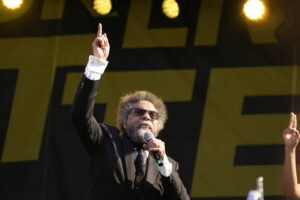
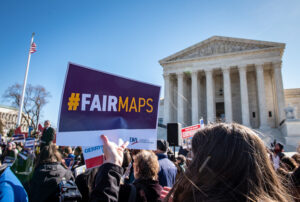
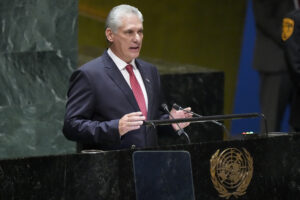
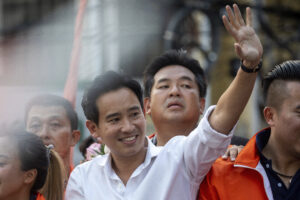
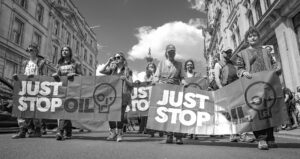
You need to be a supporter to comment.
There are currently no responses to this article.
Be the first to respond.